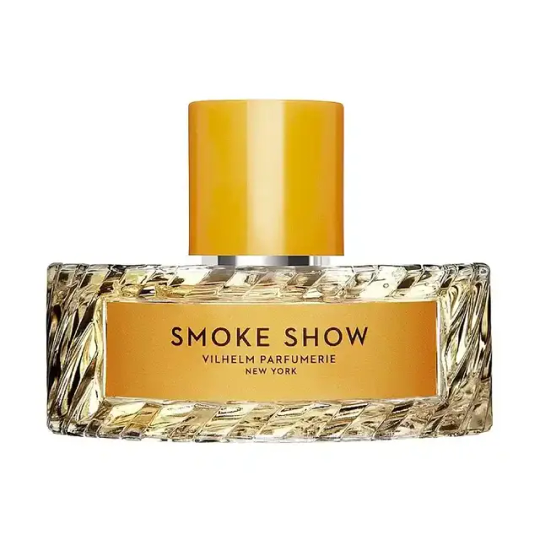#FragrantJourney
Explore tagged Tumblr posts
Text

Vilhelm Parfumerie Smoke Show EDP 100ML
Vibrant spotlights, smoky rooms, simmering jazz, yearning notes. Simmering, spicy notes of agarwood are redolent of the era’s spellbinding verve. The soaring notes of Ellington on the ivory keys and the gripping torment in Billie Holiday’s voice take the audience to life’s beautiful extremities. Leather and rose take center stage, while pink pepper and saffron accentuate the nuanced spices of this burning composition
#VilhelmParfumerie#SmokeShow#EDP100ML#FragranceLovers#PerfumeCollection#LuxuryScents#SignatureScent#OudFragrance#ScentOfTheDay#PerfumeAddict#NicheFragrance#FragrantJourney#EauDeParfum#ScentsWithStories#PerfumeReview#FragranceCommunity#ScentExploration#UltraChic#AromaticExperience#BespokeLuxury
1 note
·
View note
Text
How do you cook with white wine vinegar?
White wine vinegar is a versatile ingredient that can be used in various ways in cooking. Here are some common ways to cook with white wine vinegar:
1. Salad dressings: White wine vinegar adds a tangy and slightly fruity flavor to salad dressings. Combine it with olive oil, Dijon mustard, salt, pepper, and other herbs or seasonings of your choice to create a delicious vinaigrette.
2. Marinades: White wine vinegar can be used as part of a marinade for meats, poultry, or vegetables. It helps tenderize the food and adds a bright flavor. Combine the vinegar with other ingredients like olive oil, herbs, spices, and garlic to create a flavorful marinade.
3. Deglazing pans: After cooking meats or vegetables, you can deglaze the pan with white wine vinegar to create a tasty sauce. Pour a small amount of vinegar into the hot pan and scrape up the browned bits from the bottom. This adds depth of flavor to the sauce.
4. Pickling: White wine vinegar is commonly used in pickling fruits, vegetables, and even certain meats. It provides acidity and helps preserve the food. Combine the vinegar with water, sugar, salt, and spices to create a pickling brine.
5. Sauces and reductions: White wine vinegar can be used to enhance the flavor of sauces and reductions. Add a splash of vinegar to a pan sauce or reduction to add brightness and balance to the dish.
6. Poaching: When poaching eggs or fish, adding a tablespoon of white wine vinegar to the poaching liquid can help coagulate the proteins, resulting in a neater and more cohesive final product.
Remember that white wine vinegar has a strong flavor, so start with a small amount and adjust to taste. It's also a good idea to choose a high-quality white wine vinegar for the best results.
#GardenDelights#RefreshingFragrance#FloralEssence#CitrusBliss#NaturallyScented#BlossomingAromas#SensoryEscape#DivineNectar#ZestfulElixir#NaturePerfected#PurelyRefreshing#BotanicalTreat#EssentialBliss#GardenOfSerenity#FragrantJourney#SavorTheScent#AromatherapyEscape#NaturallyInvigorating#ElevateYourSenses#RevitalizingExperience#lucky store#buy now#imported#luckystore.in#entertainment#luckystorestore
1 note
·
View note
Text
Is Kewra Water orange blossom?
No, Kewra water and orange blossom water are not the same. Kewra water is derived from the flowers of the Kewra plant, scientifically known as Pandanus fascicularis. It is commonly used in Indian and Southeast Asian cuisine to add a floral aroma to dishes and beverages. Kewra water has a distinct fragrance that is often described as sweet and reminiscent of rose or jasmine.
On the other hand, orange blossom water is made from the blossoms of the bitter orange tree, scientifically known as Citrus aurantium. It is used in Middle Eastern and Mediterranean cuisines as a flavoring agent. Orange blossom water has a delicate and fragrant citrus aroma, with a hint of floral notes.
While both Kewra water and orange blossom water are floral waters used in culinary applications, they are derived from different plants and have distinct flavors and fragrances.
#GardenDelights#RefreshingFragrance#FloralEssence#CitrusBliss#NaturallyScented#BlossomingAromas#SensoryEscape#DivineNectar#ZestfulElixir#NaturePerfected#PurelyRefreshing#BotanicalTreat#EssentialBliss#GardenOfSerenity#FragrantJourney#SavorTheScent#AromatherapyEscape#NaturallyInvigorating#ElevateYourSenses#RevitalizingExperience#lucky store#buy now#imported#luckystore.in
1 note
·
View note
Text
Is orange extract the same as orange blossom water?
No, orange extract and orange blossom water are not the same. They are different products with distinct flavors and uses.
Orange extract is a concentrated flavoring made by extracting the oils from the peel of oranges. It is typically used in baking and cooking to add a strong orange flavor to recipes. Orange extract is often made with alcohol, which helps to preserve the flavor and extend its shelf life.
On the other hand, orange blossom water is a distillation of the blossoms of the bitter orange tree (Citrus aurantium). It has a delicate floral scent and flavor, with subtle notes of orange. Orange blossom water is commonly used in Middle Eastern and Mediterranean cuisines as a flavoring agent in desserts, pastries, and beverages. It can also be used to add a fragrant touch to dishes like rice or couscous.
In summary, while both orange extract and orange blossom water provide flavors associated with oranges, they have distinct tastes and are used in different culinary contexts.
#GardenDelights#RefreshingFragrance#FloralEssence#CitrusBliss#NaturallyScented#BlossomingAromas#SensoryEscape#DivineNectar#ZestfulElixir#NaturePerfected#PurelyRefreshing#BotanicalTreat#EssentialBliss#GardenOfSerenity#FragrantJourney#SavorTheScent#AromatherapyEscape#NaturallyInvigorating#ElevateYourSenses#RevitalizingExperience#lucky store#buy now#imported#luckystore.in
0 notes
Text
Which is better for skin roses water or Orange blossom?
Both rose water and orange blossom water are popular skincare ingredients known for their soothing and rejuvenating properties. While both can be beneficial for the skin, the choice between the two ultimately depends on personal preference and individual skin needs.
Rose water is derived from rose petals and has been used for centuries for its calming and hydrating properties. It is known to help balance the skin's pH levels, reduce redness and inflammation, and provide a refreshing sensation. Rose water is suitable for most skin types, including sensitive skin, and can help moisturize and tone the skin.
Orange blossom water, also known as neroli water, is derived from the blossoms of the bitter orange tree. It has a delightful fragrance and is often used in skincare for its antiseptic and skin-brightening properties. Orange blossom water can help soothe irritated skin, reduce blemishes, and improve overall skin complexion. It is particularly beneficial for oily or acne-prone skin due to its astringent properties.
Ultimately, the choice between rose water and orange blossom water comes down to personal preference and the specific needs of your skin. Some individuals may find the scent or effects of one water more appealing than the other. It's always recommended to perform a patch test on a small area of skin before incorporating any new product into your skincare routine to ensure compatibility and minimize the risk of irritation or allergic reactions.
#GardenDelights#RefreshingFragrance#FloralEssence#CitrusBliss#NaturallyScented#BlossomingAromas#SensoryEscape#DivineNectar#ZestfulElixir#NaturePerfected#PurelyRefreshing#BotanicalTreat#EssentialBliss#GardenOfSerenity#FragrantJourney#SavorTheScent#AromatherapyEscape#NaturallyInvigorating#ElevateYourSenses#RevitalizingExperience#lucky store#buy now#imported#luckystore.in#entertainment#luckystorestore
0 notes